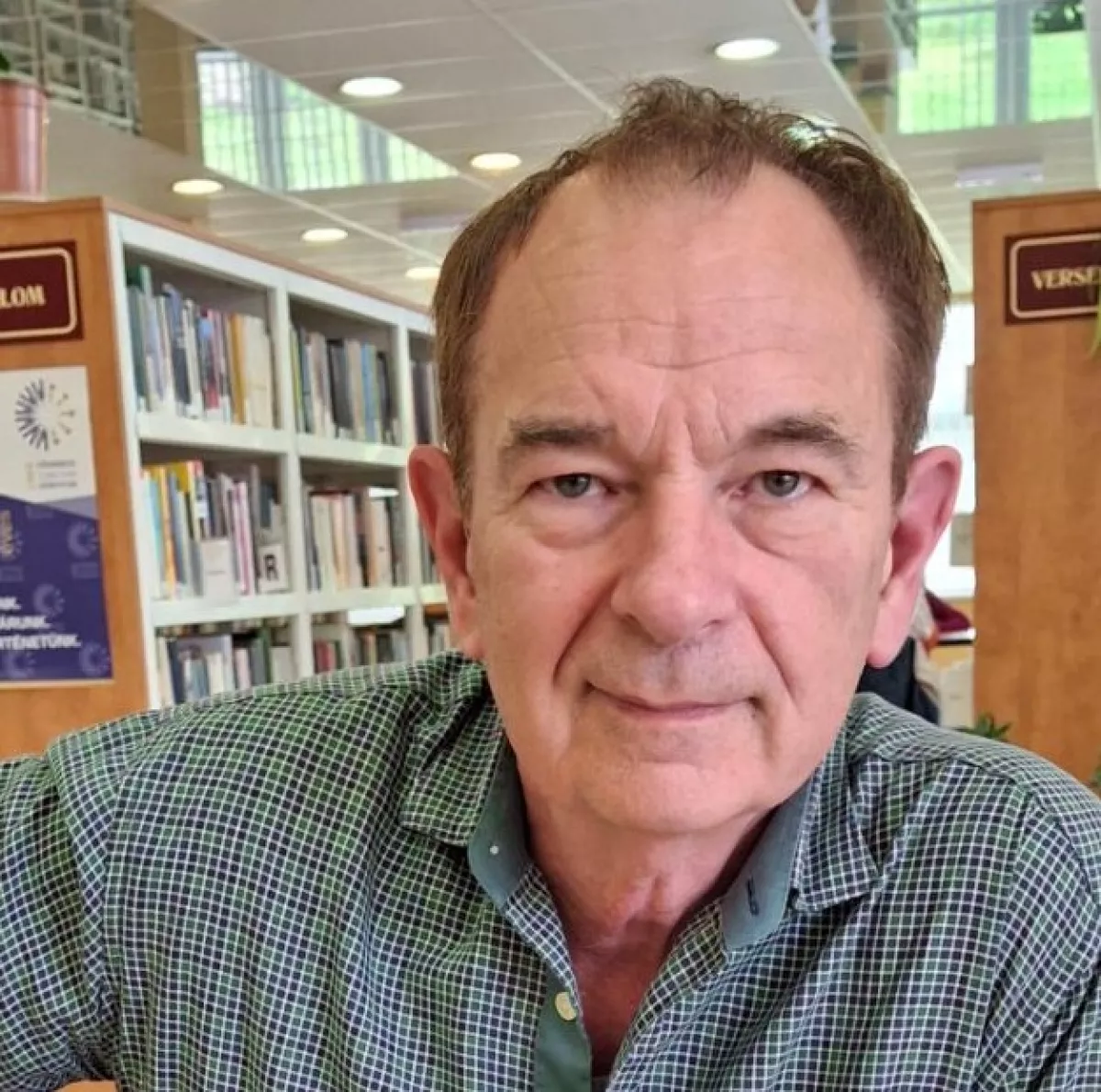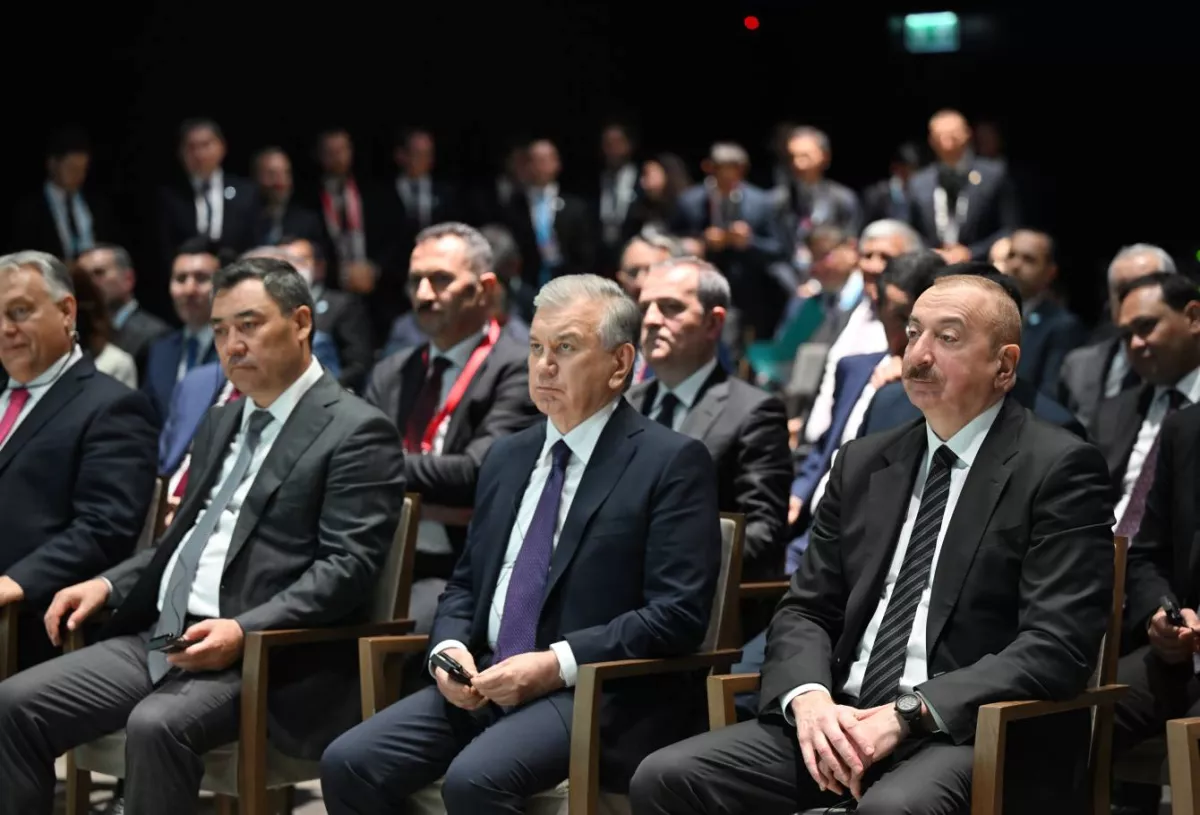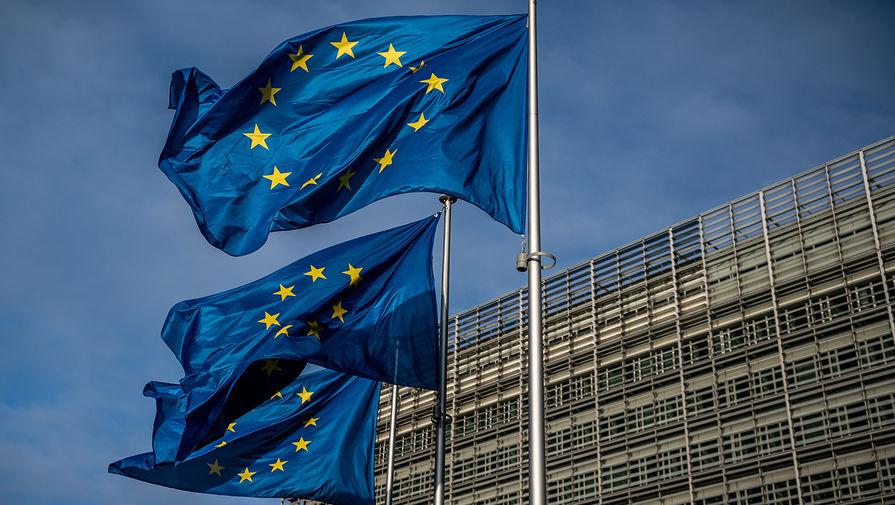“Hungary has experienced the ‘democratic values’ of the EU first-hand” Hungarian analyst speaks to Caliber.Az
In an exclusive interview with Caliber.Az, Hungarian political analyst and journalist Attila Csarnai offers insights into Hungary’s growing engagement with the Organisation of Turkic States, the country’s complex relationship with the European Union, and Prime Minister Viktor Orbán’s distinctive political path.

— Today (May 21), Budapest has brought together the leaders of the Turkic states. In your view, what is Hungary’s interest in such close cooperation with the Organisation of Turkic States, to the point that an informal summit of OTS heads of state was held in its capital today?
— Hungary is perhaps the only country in the European Union that maintains close relations with Azerbaijan, Türkiye, and the Central Asian states. The development of cooperation with the South Caucasus—primarily with Azerbaijan—is extremely important for Hungary and also aligns with the interests of these countries.
Moreover, this holds great significance for the entire European Union, which, despite everything, understands perfectly well that the importance of your region will continue to grow.

At the same time, cooperation with the Organisation of Turkic States is also shaped by objective factors—first and foremost, the disagreements between Hungary and several EU member states. Our goals and interests often diverge from the official position of Brussels.
There is also an economic dimension: Hungary receives gas and other energy resources, including from Azerbaijan. For our country, energy partnership with Azerbaijan is of strategic importance.
— Let’s speak in more detail about Hungary–EU relations. What lies at the heart of the disagreements?
— In my view, the European Union’s role in global politics and the economy is weakening year by year. Moreover, the EU is struggling with self-definition—that is, it cannot clearly formulate for itself what role it wants and is capable of playing in the future. Because of this, Hungary believes that the EU must undergo reform in order to once again become a significant player on the world stage.
This divergence of views is especially evident now, as the European Union continues to impose new sanctions on Russia without offering a clear path toward ending the war in Ukraine. It often seems that the EU is more focused on prolonging the conflict, yet lacks a vision for how long it might continue. In contrast, the positions of the United States and the United Kingdom are more proactive and coherent—they are seeking real strategies to resolve the conflict.

The key question here is: “How many more people must die in this war?” Thousands are dying every day. It is a tragedy. Hungary is striving to find solutions and, in my opinion, can play a special mediating role between the EU and Russia.
— Unlike many other European leaders, Viktor Orbán is a charismatic and unconventional politician who often goes against established norms. Could this also be a reason for the misunderstanding?
— Partly, yes. Viktor Orbán places great emphasis on Hungary’s sovereignty, border security, and national interests, whereas the EU’s ideology often prioritises integration. However, in practice, this approach does not always work effectively.
The EU consists of 27 countries, each with its own history, language, and level of economic development—factors that significantly complicate genuine cooperation. Yet Brussels often ignores these differences.
Unlike the Brussels bureaucracy, Orbán has a different understanding of democracy and development. The European Union frequently showcases its “democratic values,” but in reality, resorts to heavy-handed pressure whenever a member state expresses an independent point of view. Hungary has experienced this first-hand: EU funds that rightfully belong to us are still frozen.

The EU sometimes accuses Orbán of being a dictator or an authoritarian leader. That is simply not true. Hungary has a different historical experience. We lived under a communist regime for a long time, and not everyone in the EU understands what it means to build a democracy after totalitarian rule. It is precisely this historical difference that shapes Budapest’s unique political stance.
Some in Europe interpret our criticism as a sign that Hungary wants to leave the EU—but they are mistaken. Orbán does not seek to exit the European Union; he advocates for its reform.
— Recently, there has been growing talk of the emergence of a kind of Budapest–Ankara–Baku triangle. What underpins this partnership?
— At its core lies, among other things, linguistic and cultural kinship. Our ancestors arrived in what is now Hungary over a thousand years ago from the Caucasus region. Even today, the Hungarian language retains many words of Turkic origin. This cultural connection is still very much alive.
From a political perspective, relations between our countries have also grown significantly stronger. The frequent reciprocal visits—Orbán to Baku and Ankara, and the presidents of Türkiye and Azerbaijan to Budapest—speak for themselves. We share many common interests, and our cooperation is only just beginning to gain momentum.








